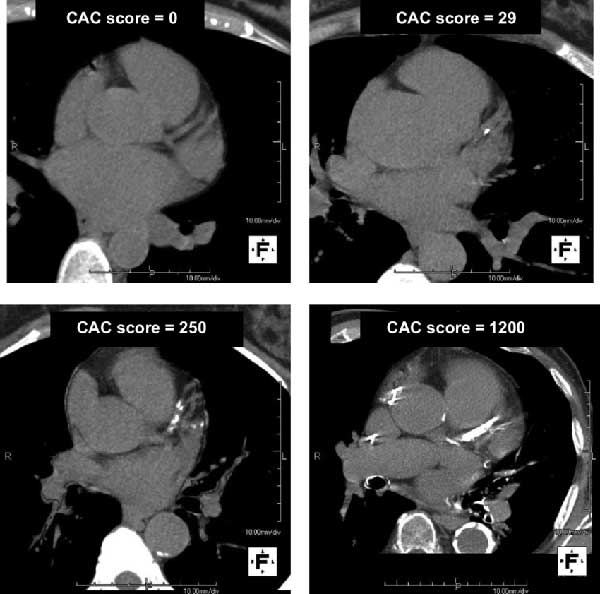Coronary Calcium Test
- Posted On:

Your calcium score is a measure of the amount of calcified plaque in your coronary arteries. This score can be obtained through a non-invasive CT scan of the heart. Knowing your calcium score can help determine your risk of developing heart disease.
Heart disease is a leading cause of death worldwide, and calcified plaque in the arteries is a major contributor to this disease. By knowing your calcium score, you can take steps to reduce your risk of developing heart disease. For example, if your calcium score is high, you may need to make lifestyle changes such as quitting smoking, eating a healthy diet, and exercising regularly. Your doctor may also recommend medications to help manage your blood pressure or cholesterol levels.
Overall, knowing your calcium score can provide valuable information about your heart health and help you make informed decisions about your lifestyle and healthcare. It is important to talk to your healthcare provider about your risk factors for heart disease and if a CT Calcium Score test is appropriate for you.
The coronary arteries supply blood to your heart and if they become clogged or narrowed, it can increase your risk of heart disease and heart attacks. A calcium score test is a non-invasive imaging test that uses computed tomography (CT) scanning to detect the amount of calcium in the walls of your coronary arteries which is a marker of how much cholesterol plaque is present.
The results of the coronary calcium test produce a score, which is calculated based on the amount of calcium found in the arteries. The score can range from 0 to more than 400, with higher scores indicating a greater amount of calcium/cholesterol plaque and therefore a higher risk of coronary heart disease. This test is not an absolute predictor in assessing your risk of a heart attack or stroke. It is, however, another tool your provider can use to determine your heart health plan.

Who Should Consider Getting a Test Done?
This test is not necessary if a patient has been previously diagnosed with Coronary Artery Disease (CAD).
A practitioner may recommend this simple, low-cost test to further assess risk for men (40 and older) and women (45 and older). The test is not recommended universally for everyone but it can assist healthcare providers in making treatment decisions for people with borderline risk of heart disease.
People may choose to have a CT Calcium Score test done if they have risk factors for heart disease, such as the following:
- Have a family history of early coronary artery disease.
- Use tobacco products now or have in the past.
- Have a history of high cholesterol, diabetes, or high blood pressure.
- Are overweight (a body mass index, or BMI, higher than 25) or obese (a BMI higher than 30).
- Have some of the newer risk factors for coronary disease like lupus, psoriasis, etc.
The test can help identify early signs of heart disease before symptoms develop so that preventative measures may be taken. It is important to note that this test is not recommended for everyone, and you should speak with your doctor to determine if it is right for you.
During the Procedure
Before a coronary calcium test begins, sticky patches called electrodes are placed on your chest. Wires connect the patches to a machine that checks your heartbeat.
The scan is done using a computerized tomography (CT) scanner. You lie on your back on a movable table. The table slides into a large machine shaped like a ring. Your head is outside the scanner during the exam.
- You will need to avoid caffeine and nicotine the day of the exam.
- You will be asked to stay still and hold your breath for 20 seconds at different times throughout the test.
- The test takes about 30 minutes.
After the Procedure
You can drive yourself home and continue your daily activities after the test unless your doctor tells you not to do so.
Are These Tests Covered by Insurance?
The test is not covered by insurance. The cost of the test at Myrtue Medical Center is $75.00.
Discussing Results with Your Healthcare Team
Understanding your personal risk factors for cardiovascular disease, and other related conditions is important for your overall health. Your healthcare team gives you your CT Calcium Score test results. These results should not be used as a single sign of your overall health and risk of heart disease. The information from the scan should be reviewed along with other personal health information.

